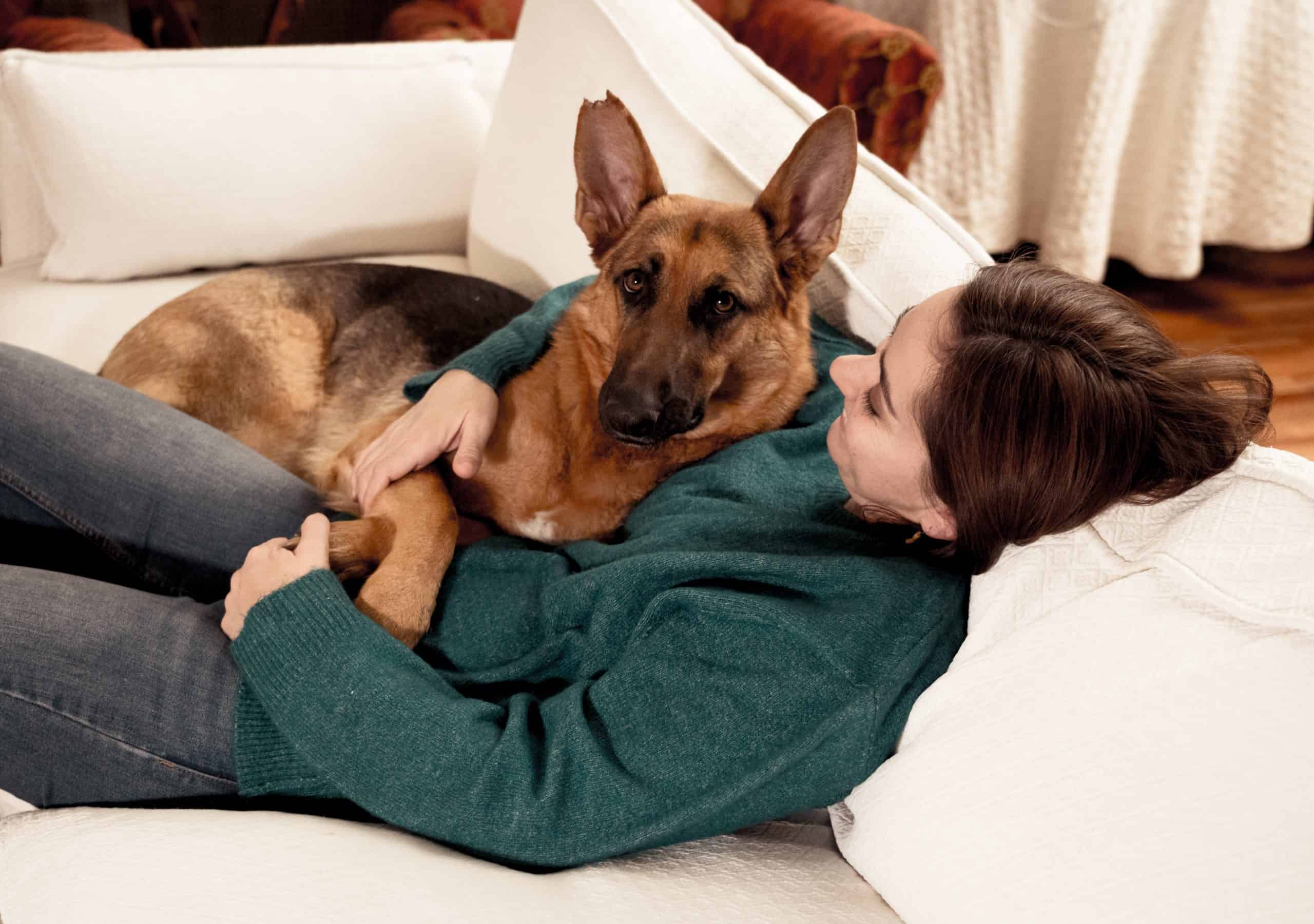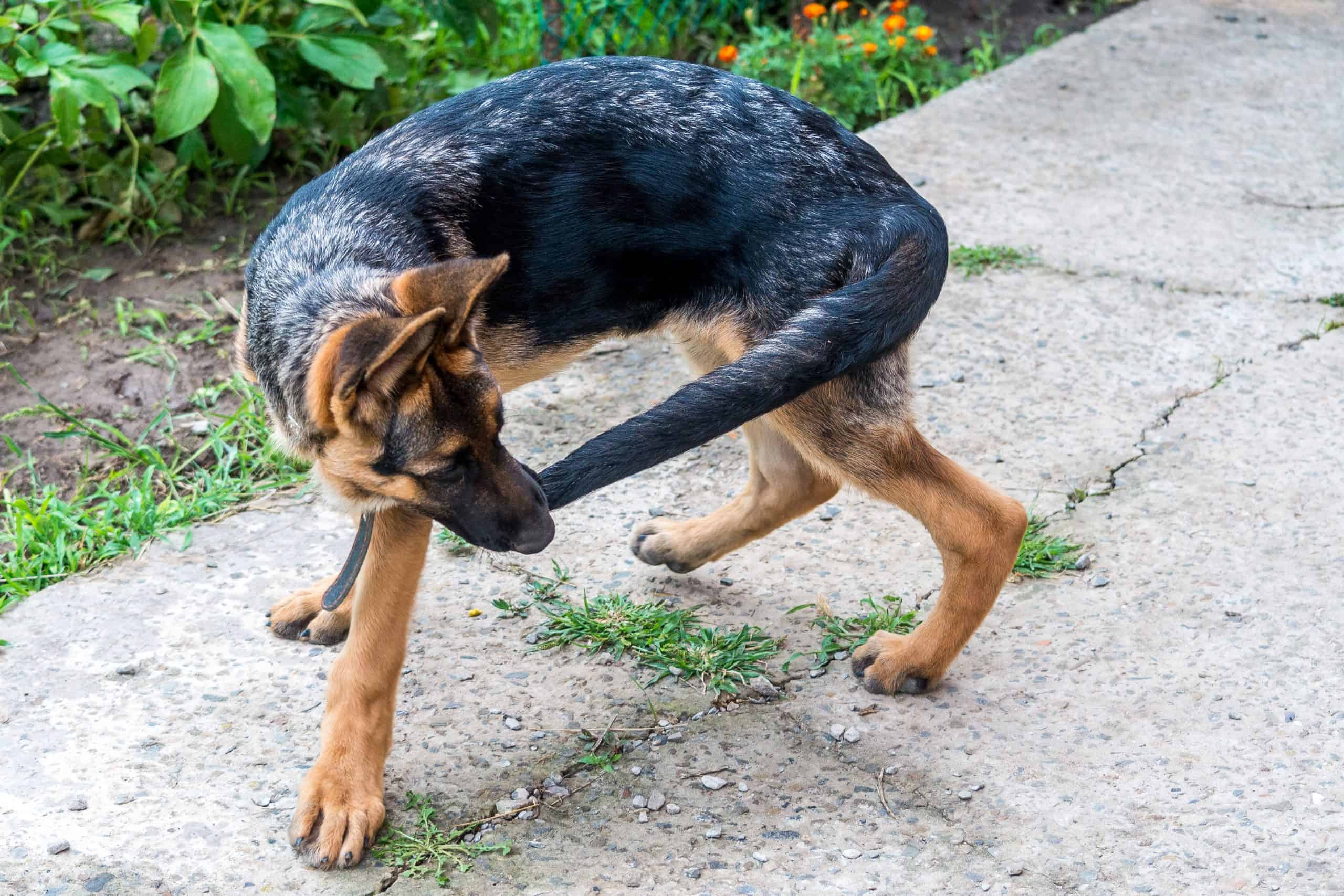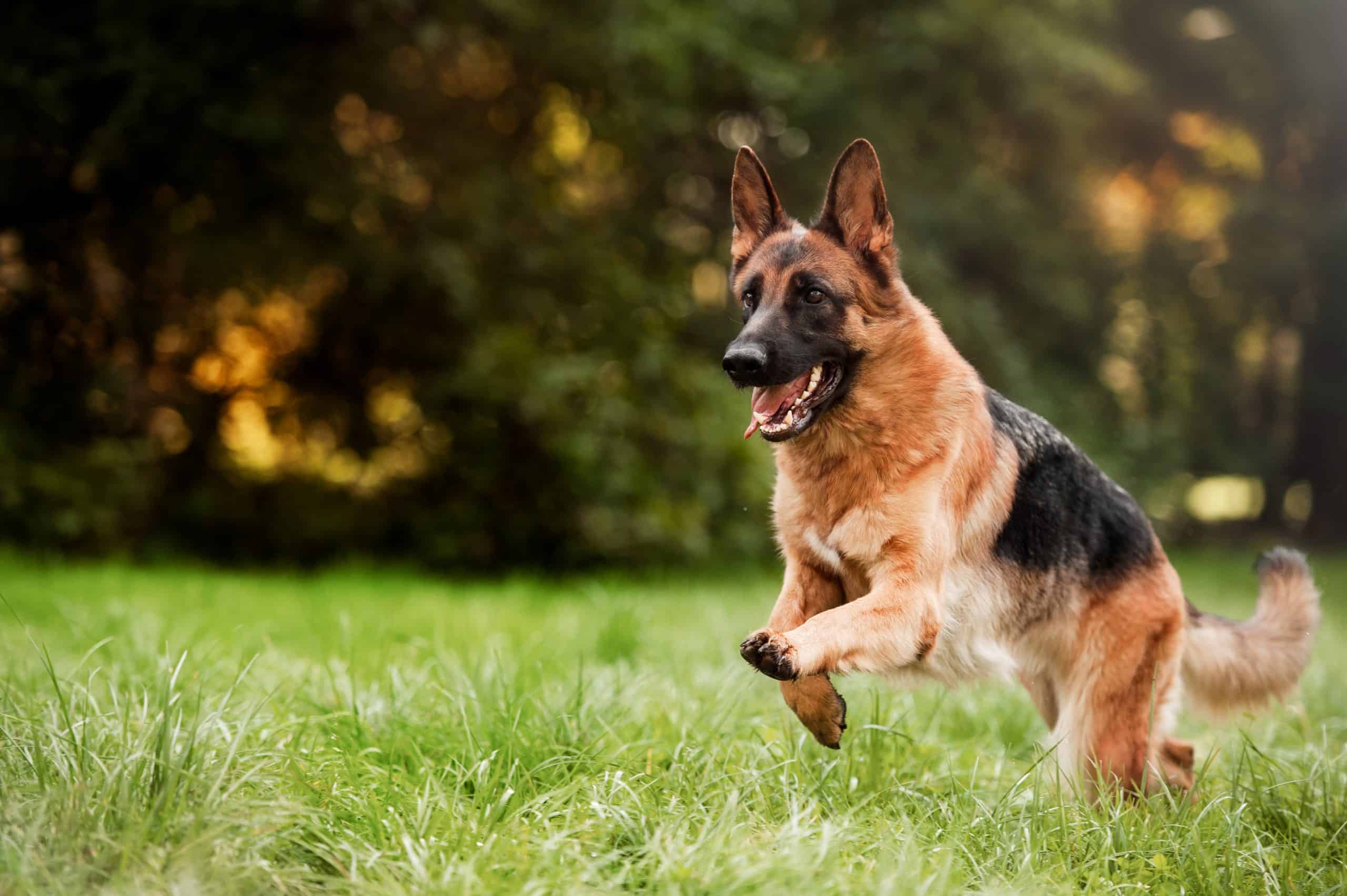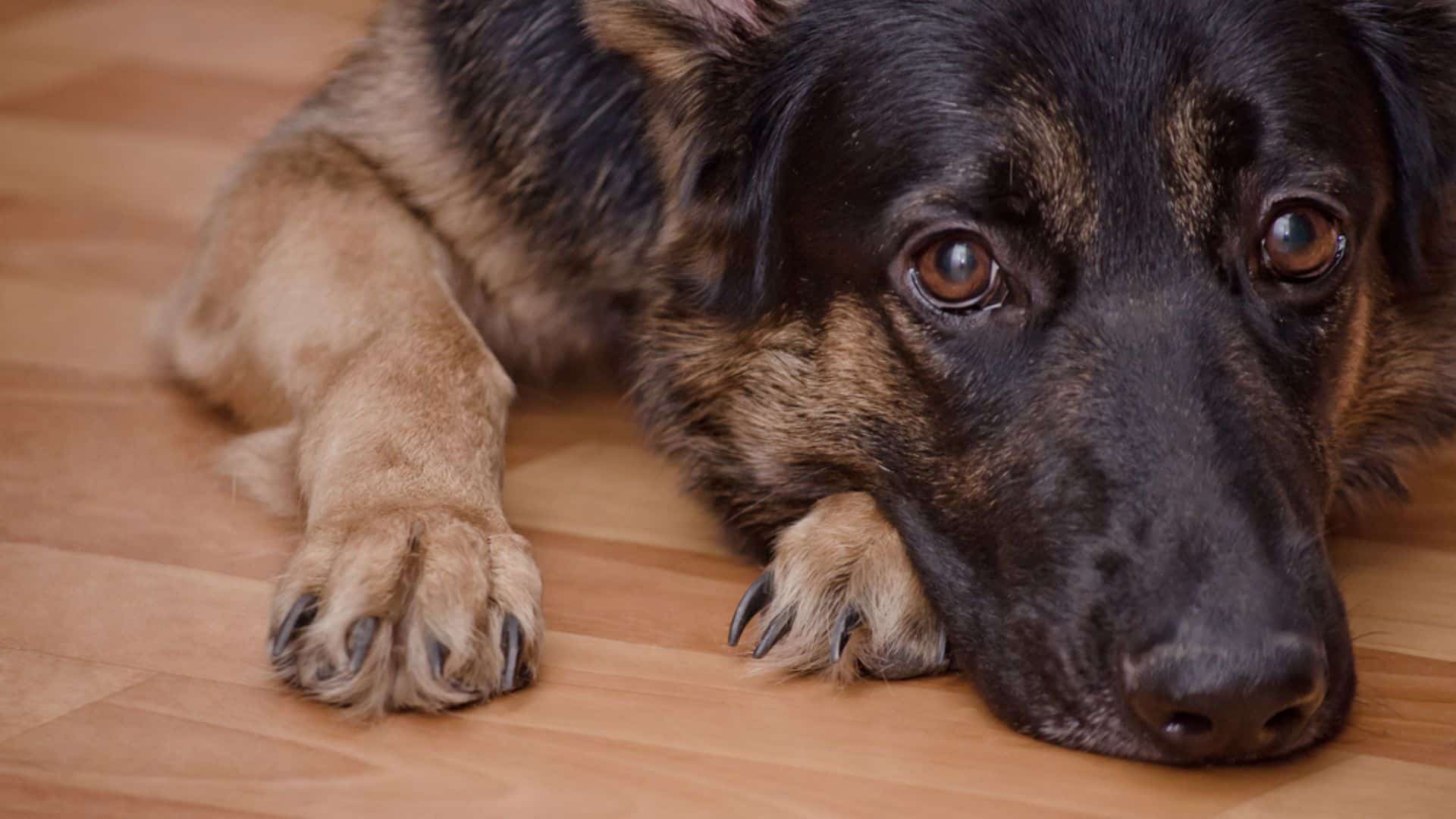One thing is for certain – no dog owner likes seeing floors scratched by their pooch. This sort of behavior can be really infuriating and annoying, especially if you have just purchased an expensive rug or carpet, am I right?
While scratching floors is not a common behavior in all German Shepherds, some of these impeccable bois and girls might pick up this bad habit. And, to explain why – we’re gonna need a little more than just one particular answer!
Here are six most common rationales for this type of behavior, as well as what the most effective ways are to prevent your GSD from doing this!
#1 Attention-Seeking

If there’s one thing that you should know about these pooches, it’s that their attention-seeking behavior often derives from boredom!
That’s right!
While they may be one of the greatest family dogs in the world, a bored German Shepherd is never good news. They’re usually gonna end up being clingy, hyperactive, and high-maintenance throughout the entire day.
And, one way of their attention-seeking show could be acting up like a naughty toddler, doing exactly what they’re not supposed to do – scratching floors!
#2 Excessive Energy
If you’re not a fan of high-intensity activities, then you’re gonna have to find other ways to entertain your German Shepherd!
The reason why these black-and-cream beauties can resort to floor-scratching might lie in the fact that they have a little extra energy up their sleeve.
While regularly trained German Shepherds typically won’t display any weird behavior, this might be the case with the ones that don’t receive enough exercise during the day.
#3 Anxiety

Extreme fear and anxiety is not just a problem that affects German Shepherds, but all dog breeds. And, the worst part is – it’s never manifested uniformly.
While some GSDs will resort to digging or scratching as an anxious response to a threat, others might display irrational and predatory aggression, which, according to Chavez and Opazo1, can be extremely dangerous or even fatal for smaller dogs and children.
However, scratching the floor in this regard represents a dog’s own instinctive way of trying to get out of danger. So, if your GSD is scratching or digging irrationally during storms, loud noises, fireworks, and similar events – there’s a good chance that he’s anxious.
#4 Nesting
Have you noticed that your GSD is walking in circles or behaving weirdly lately? And, on top of all that – he’s scratching floors?
If yes, you have probably just witnessed the nesting process, which is completely normal for dogs.
Generally, all animals, including these four-legged furrballs, love nothing more than to feel safe. By scratching or digging the floor, they’re practically preparing “the stage” for relaxation, sleeping, resting, or giving birth.
While this sort of behavior is more common in pregnant females, it is not rare for all GSDs to resort to it.
#5 Obsessive-Compulsive Disorder

OCD in dogs – is that even a thing?
Well, as much as it sounds surreal, all dogs, including GSDs, can suffer from this disorder. OCD happens when a dog repeats normal behavior excessively without a justifiable reason.
Scratching the floor can be one of them, but according to Diane Frank2, OCD in dogs also manifests in shadow chasing, spinning or tail chasing, fence running, and many others.
The good news is that it’s curable! OCD, in most cases, is treated through medication and behavior modification.
#6 Comfort
We all know that lying on the floor isn’t exactly the most comfortable solution for a dog. And, that right there is the reason why some GSDs resort to scratching them!
As with scratching the ground or the grass, or basically any other surface before lying down – GSDs are trying to make their lying space more comfy and more homey.
Using the same logic, many GSDs will attempt to lie or sit on their owners rather than sit on the floor. They’re just looking for a soft spot to settle on!
3 Proven Things To Do

#1 Exercise
One way to avoid this unpleasant habit in your German Shepherd is to exercise it more. In fact, this is one of the most active breeds in the world, which means that they will probably need around two hours of high-intensity exercise during the day.
Otherwise, you might face boredom, clinginess, and a lot of behavioral outbursts in your pooch.
The great news is that you can mix up the old-fashioned exercising methods with walking your GSD. This way, you will be able to stimulate it mentally, too, while giving it a proper amount of physical exercise during the day.
#2 Toys
According to D.L. Wells3, the usage of toys has proven to have a positive impact on kenneled dogs. With the same logic, you can use interactive dog toys to stimulate your German Shepherd, especially if you tend to spend more time indoors.
This way, you will occupy your GSD with an extra activity, while stimulating positive behavior instead of dealing with a bad habit.
This is all done in good amounts, though, as no excessive usage of dog toys is recommended!
#3 Providing A Comfy Bed

Last, but not least – with the purchase of a proper doggo bed, you are most likely to solve 99% of the scratching problems.
After an active day in the field or casual playtime in the back yard, all these large furrballs are looking for is a nice place to calm down and relax. And, the best part about getting one for your pooch is – you’re doing yourself a favor, too!
Conclusion
Don’t despair if some of these methods don’t work for your dog at first. It’s always essential to keep in mind that all doggos are different, and that goes for your German Shepherd, too!
Despite the fact that this is an extraordinarily smart dog breed – some GSDs simply need more training than others. And, for the most part – you need to be persistent and patient.
Still, if you end up struggling – you can always visit a professional dog behaviorist and get their advice in order to get your GSD back on track.
References:
- Gonzalo A., Chávez., Álvaro J., Opazo. (2012). Predatory aggression in a German shepherd dog. Journal of Veterinary Behavior, Volume 7, Issue 6.
- Frank, D. (2013). Repetitive behaviors in cats and dogs: are they really a sign of obsessive-compulsive disorders (OCD)? The Canadian Veterinary Journal 54(2):129-31.
- Wells, D.L. (2004). The influence of toys on the behavior and welfare of kennelled dogs. Animal Welfare.
